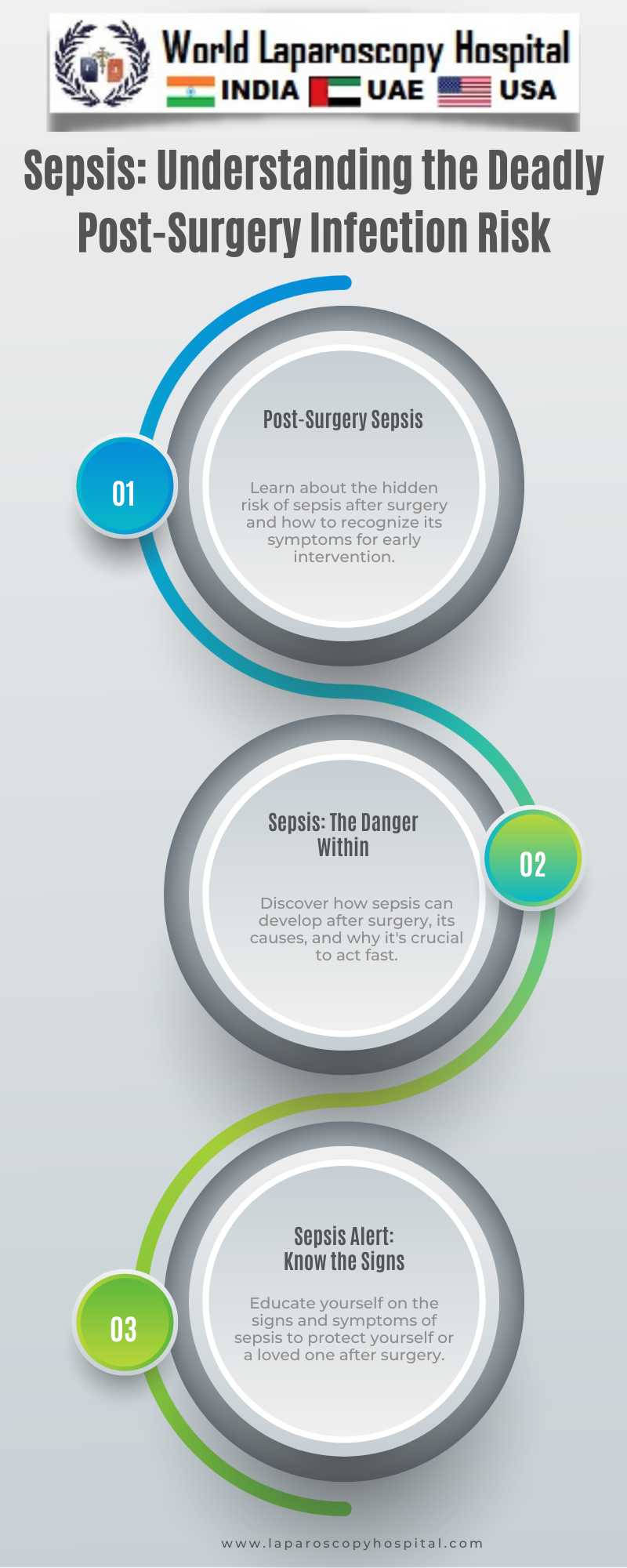Sepsis: Understanding the Deadly Post-Surgery Infection Risk
Sepsis, a potentially life-threatening condition, is a major concern for patients undergoing surgery. It is a systemic inflammatory response to an infection that can lead to organ dysfunction and failure. Post-surgery, patients are particularly susceptible to sepsis due to the stress placed on the body, the introduction of foreign materials during surgery, and the potential for surgical site infections.

Sepsis is often characterized by a combination of symptoms, including fever, increased heart rate, rapid breathing, and altered mental status. These symptoms can be subtle and may be overlooked, especially in the immediate post-operative period when patients are closely monitored for other surgical complications.
One of the key risk factors for sepsis after surgery is the development of a surgical site infection (SSI). SSIs occur when bacteria enter the surgical incision site and multiply, leading to an infection. Factors such as poor surgical technique, improper wound care, and underlying health conditions can increase the risk of SSIs and subsequent sepsis.
Preventing sepsis after surgery requires a multi-faceted approach. Proper surgical techniques, including maintaining a sterile environment, using antibiotics prophylactically, and ensuring adequate post-operative wound care, are crucial. Additionally, identifying and managing risk factors in patients, such as diabetes, obesity, and immunosuppression, can help reduce the likelihood of sepsis development.
Early recognition and treatment of sepsis are paramount in improving outcomes. Healthcare providers must be vigilant in monitoring patients for signs of infection and sepsis, particularly in the post-operative period. Timely administration of antibiotics and supportive care, such as fluid resuscitation and vasopressors, can help mitigate the effects of sepsis and improve patient outcomes.
Conclusion
Sepsis is a serious complication that can occur after surgery, particularly in patients with SSIs. Preventing sepsis requires a comprehensive approach that includes proper surgical techniques, identifying and managing risk factors, and early recognition and treatment. By understanding the risk of sepsis after surgery and implementing appropriate measures, healthcare providers can help reduce the incidence and impact of this deadly infection.

Sepsis is often characterized by a combination of symptoms, including fever, increased heart rate, rapid breathing, and altered mental status. These symptoms can be subtle and may be overlooked, especially in the immediate post-operative period when patients are closely monitored for other surgical complications.
One of the key risk factors for sepsis after surgery is the development of a surgical site infection (SSI). SSIs occur when bacteria enter the surgical incision site and multiply, leading to an infection. Factors such as poor surgical technique, improper wound care, and underlying health conditions can increase the risk of SSIs and subsequent sepsis.
Preventing sepsis after surgery requires a multi-faceted approach. Proper surgical techniques, including maintaining a sterile environment, using antibiotics prophylactically, and ensuring adequate post-operative wound care, are crucial. Additionally, identifying and managing risk factors in patients, such as diabetes, obesity, and immunosuppression, can help reduce the likelihood of sepsis development.
Early recognition and treatment of sepsis are paramount in improving outcomes. Healthcare providers must be vigilant in monitoring patients for signs of infection and sepsis, particularly in the post-operative period. Timely administration of antibiotics and supportive care, such as fluid resuscitation and vasopressors, can help mitigate the effects of sepsis and improve patient outcomes.
Conclusion
Sepsis is a serious complication that can occur after surgery, particularly in patients with SSIs. Preventing sepsis requires a comprehensive approach that includes proper surgical techniques, identifying and managing risk factors, and early recognition and treatment. By understanding the risk of sepsis after surgery and implementing appropriate measures, healthcare providers can help reduce the incidence and impact of this deadly infection.
1 COMMENTS
Dr. Ram Prakash Singh
#1
Feb 20th, 2024 7:40 pm
Sepsis, a severe complication post-surgery, especially in those with surgical site infections, demands a comprehensive prevention strategy. By employing proper surgical techniques, managing risk factors, and promptly treating infections, healthcare providers can mitigate sepsis risks and improve patient outcomes.
| Older Post | Home | Newer Post |

